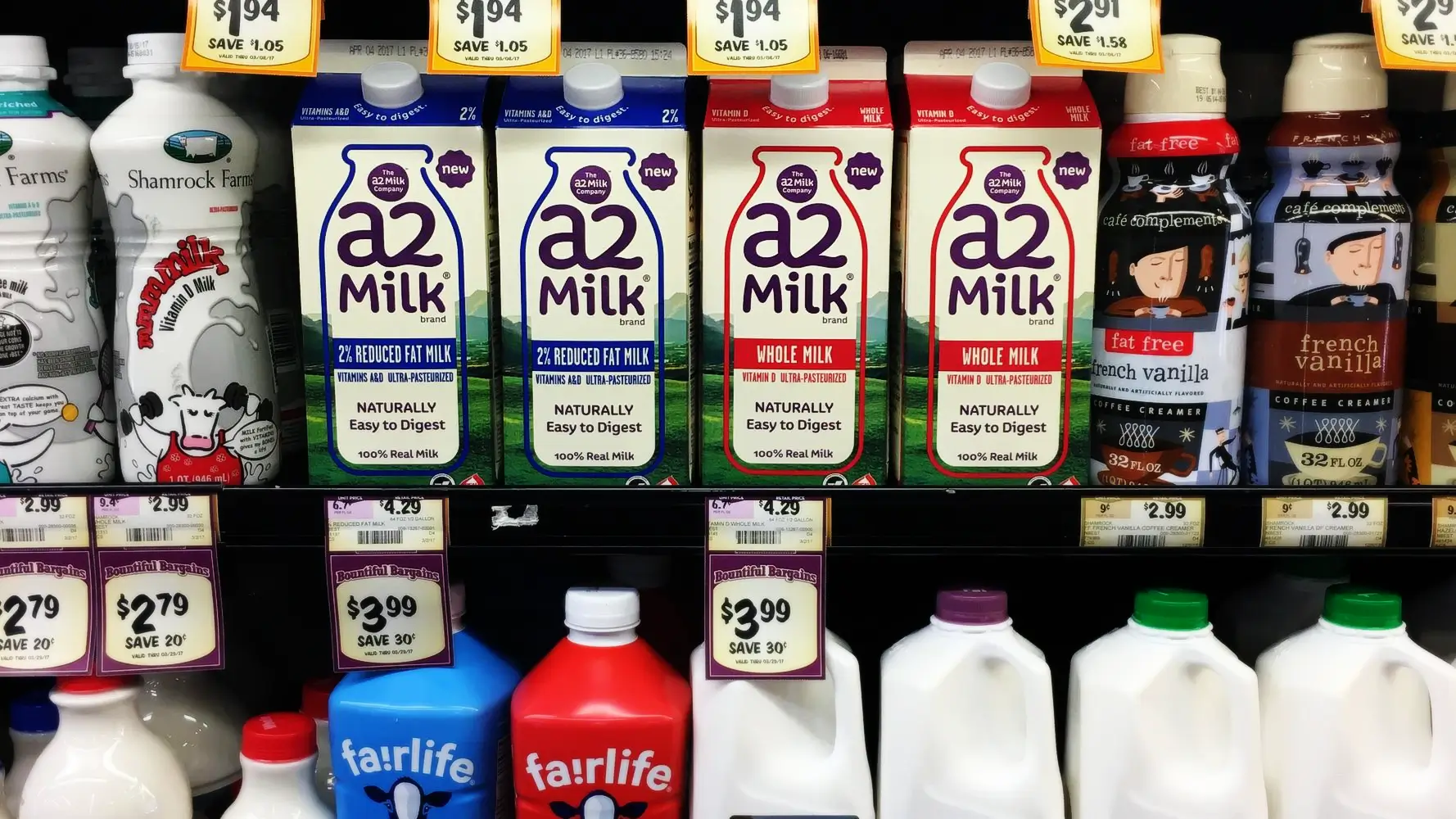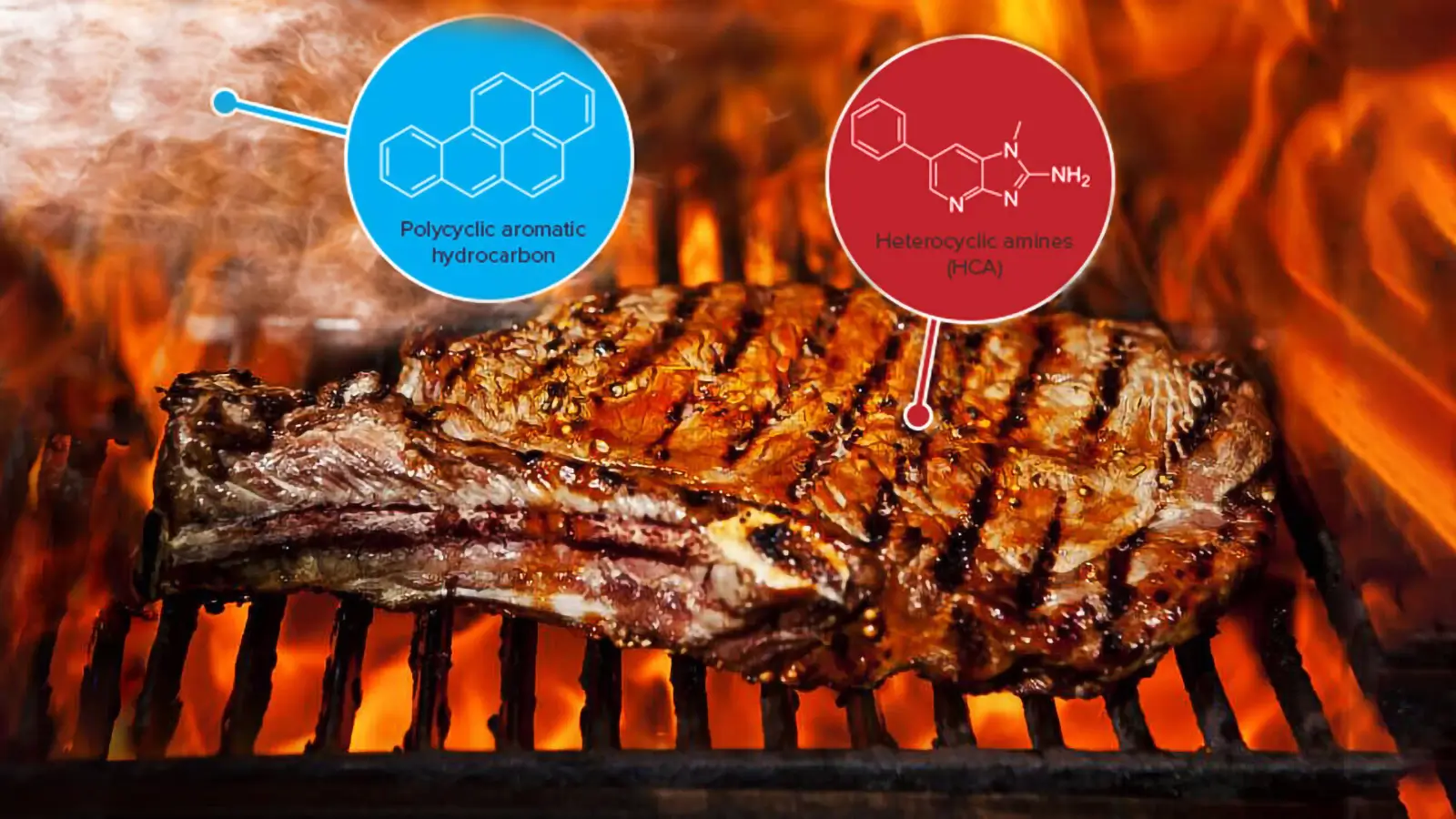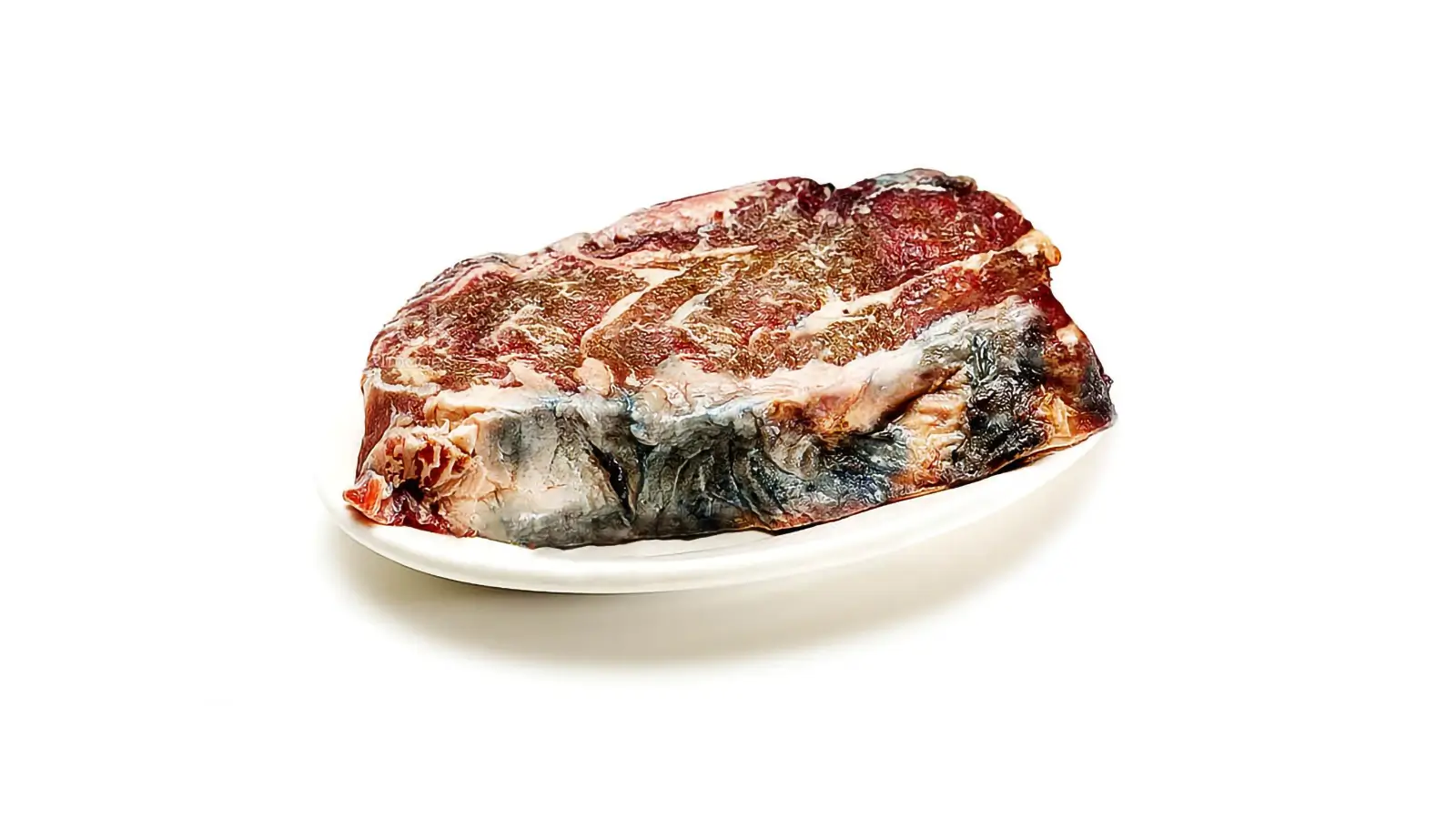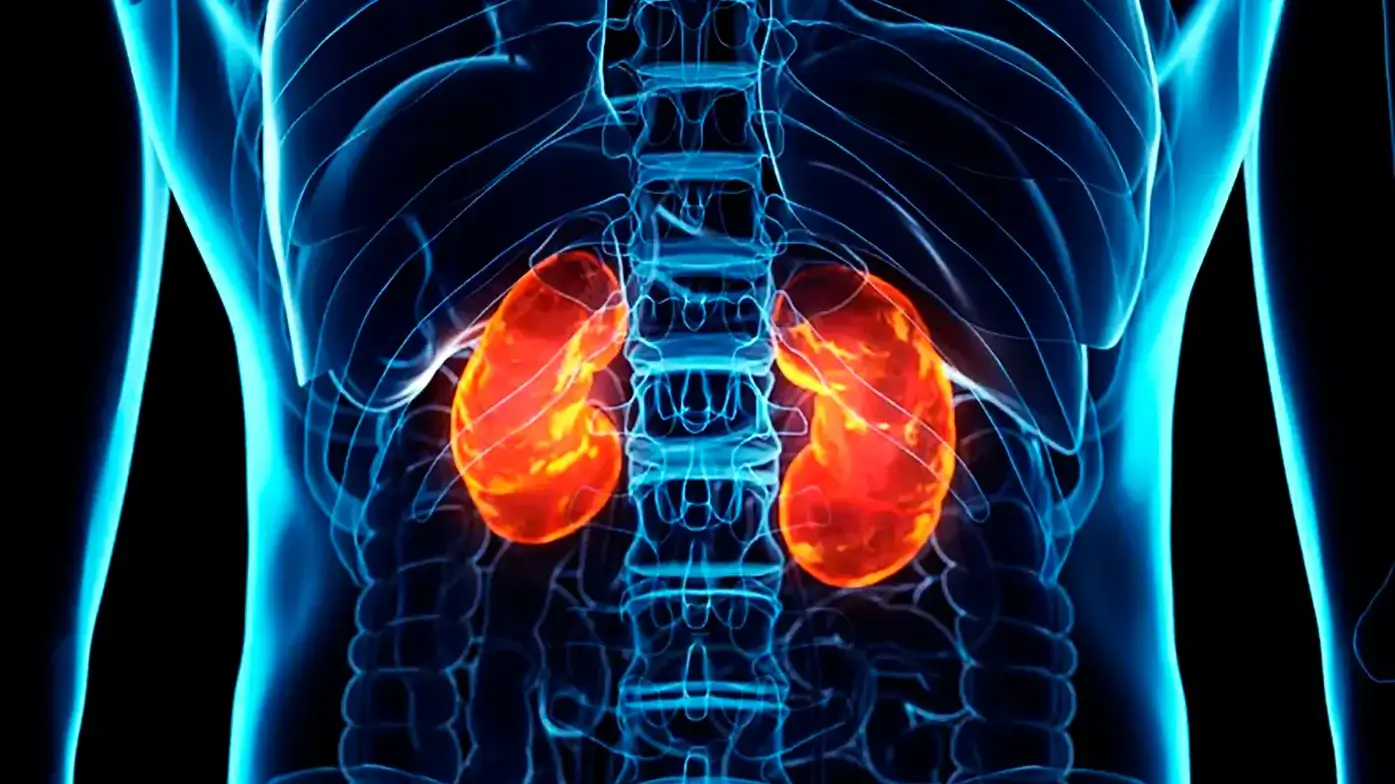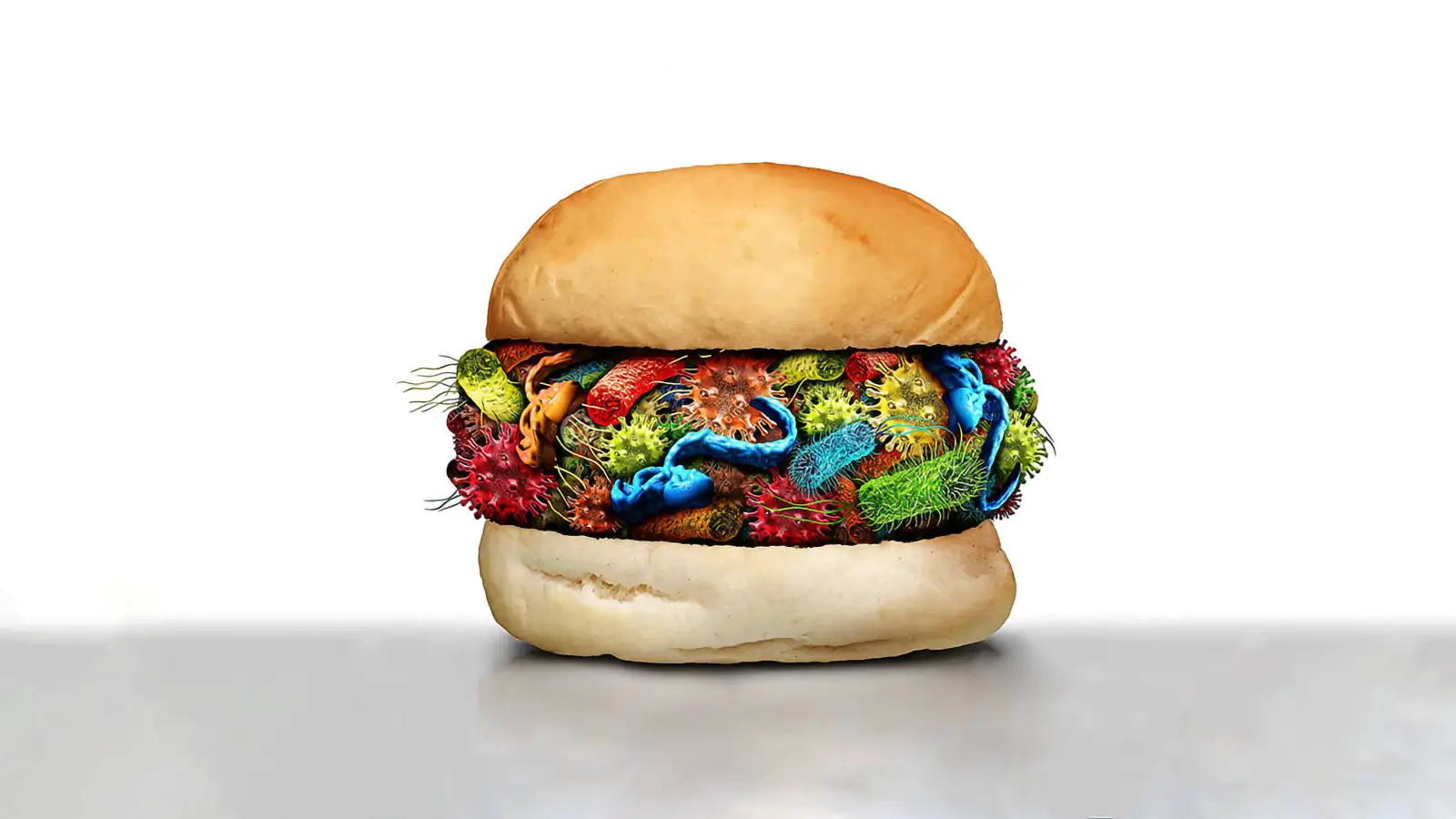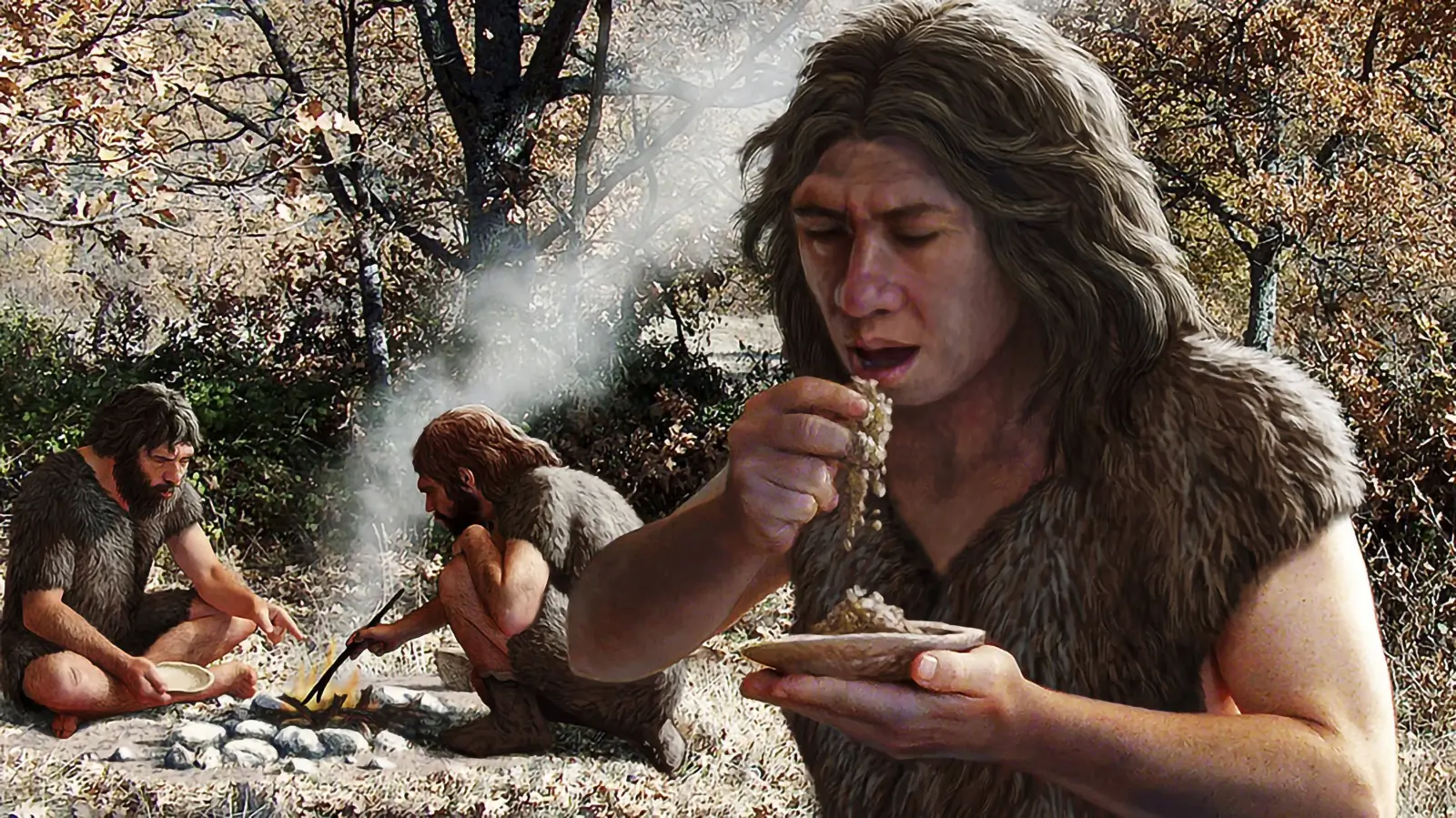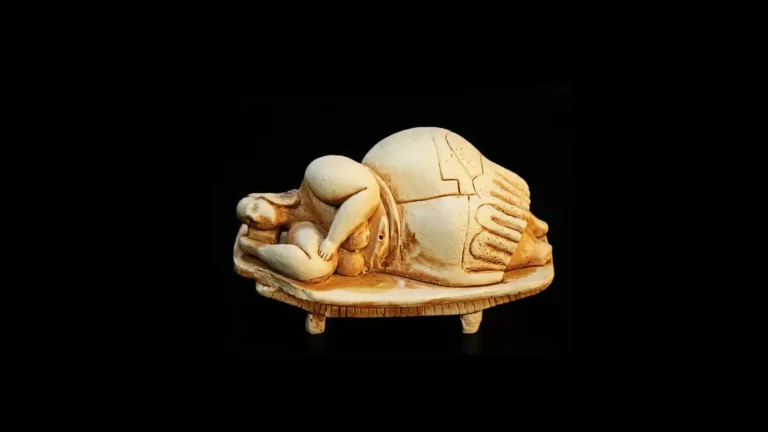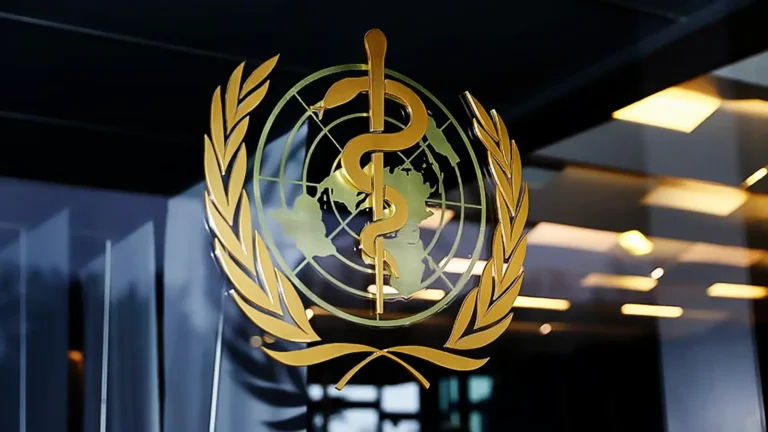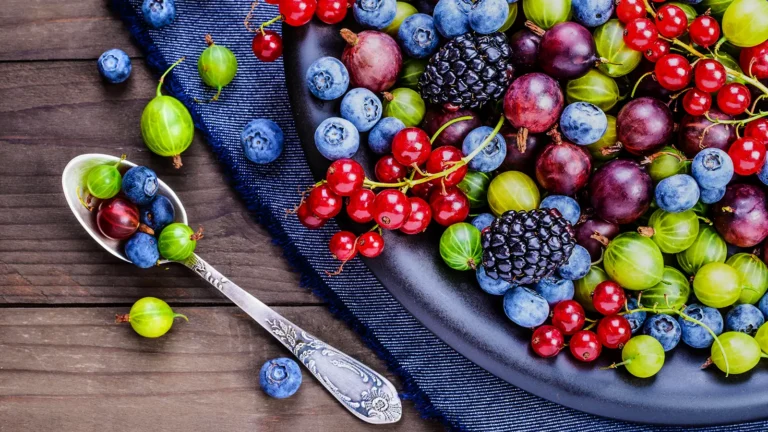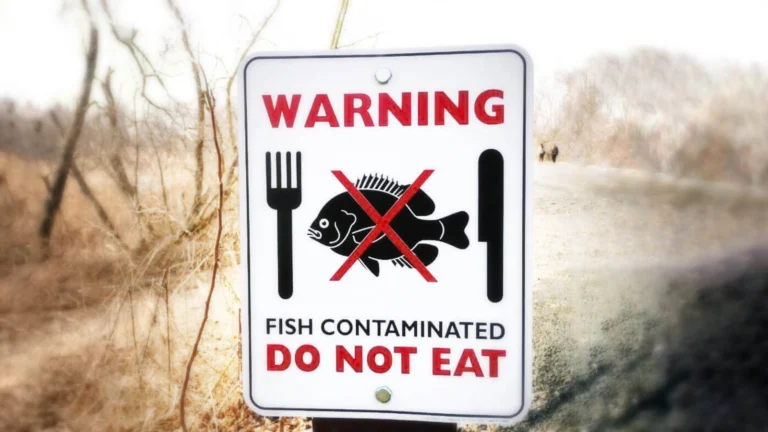Necesidades de Proteínas: Una Verdad Incómoda
Cuando los estudios antropólogos demostraron que los homínidos vivían una media de 15 a 20 gramos de proteína al día, se produjo lo que se llamó el "gran fiasco de las proteínas" en los años 1970.
Milos Pokimica
Escrito por: Milos Pokimica
Revisado Médicamente Por: Dr. Xiùying Wáng, M.D.
Actualizado el 28 de mayo de 2023Quizá una de las preguntas que más se hacen en el movimiento vegetariano y vegano es:
¿Dónde conseguiste tus proteínas?
Está tan arraigado en el subconsciente de la gente a través de toda la propaganda y el marketing dominantes que la proteína es algo esencial, si no lo más importante, por lo que, si acaso, necesitamos consumir productos animales para obtener proteínas. La segunda pregunta es:
Si no comes carne, ¿puedes obtenerla de la leche?
Tenemos que obtener las proteínas de algún sitio. Si no cubrimos nuestras necesidades de proteínas moriremos, así que si no es de la carne debe ser de la leche. Trataremos este tema de la leche en los artículos correspondientes (Leche y productos lácteos: correlaciones de riesgo para la salud). Mucha gente me ha preguntado de dónde saco las proteínas y, francamente, estoy harto de responder a esa pregunta. Así que por fin vamos a tener un análisis científico real de la cuestión de la proteína para que pueda tener una comprensión adecuada de todo el "problema."
Si usted también es vegano, sabrá exactamente qué decir a la gente cuando le hagan esta pregunta.
En primer lugar, en toda la comunidad de nutricionistas se considera que la proteína es esencial, sin hacer preguntas. El entusiasmo real se convierte casi inmediatamente después de que se descubrió por primera vez. Se la llamó la esencia de la vida.
En la década de 1890, el Departamento de Agricultura de Estados Unidos recomendaba una media de 110 g de proteínas diarias para un hombre medio.
En 1950 incluso la ONU "reconoció" algo que llamaron "La brecha proteica mundial" y que cuando se mira a los pueblos indígenas "la deficiencia de proteínas en la dieta es el problema más grave y extendido en el mundo". Por supuesto, Estados Unidos tenía en aquella época "un problema de eliminación de excedentes" de leche en polvo.
Existe incluso una enfermedad llamada Kwashiorkor, descubierta por la Dra. Cicely Williams y achacada a la deficiencia de proteínas. La Dra. Cicely Williams pasó la última parte de su vida desacreditando la enfermedad que descubrió por primera vez.
Más tarde se descubrirá que no tiene nada que ver con las proteínas sino más bien con algunas carencias de aminoácidos esenciales debidas a dietas dominadas por un solo alimento con la combinación de una malnutrición general. Es malnutrición en términos generales combinada con deficiencias de aminoácidos esenciales, no deficiencia de proteínas y sólo ocurre en niños y este es el consenso científico actual. Pero incluso esto podría ser falso. No hay pruebas científicas reales de la deficiencia de proteínas en la dieta, es decir, ensayos doble ciego con control placebo. La verdadera razón sigue sin estar clara, pero los estudios de trasplante fecal sugieren hasta cierto punto cambios en la flora intestinal que pueden ser un factor causal o uno de los principales factores. Incluso si la causa son las deficiencias de aminoácidos esenciales en el cuerpo de un adulto simplemente canibalizar parte de la masa muscular con el fin de adquirir los aminoácidos que faltan debido a la desnutrición. Y cuando se tiene malnutrición crónica y sólo se es capaz de adquirir una pequeña cantidad de un único alimento que podría carecer de algunos de los aminoácidos, entonces el cuerpo no sería capaz de combinar diferentes aminoácidos de diferentes alimentos para crear una proteína "completa". Todos los aminoácidos esenciales están presentes en todos los alimentos, pero no en cantidades adecuadas. Para compensar la falta de aminoácidos podemos comer más o comer diferentes alimentos, no sólo el maíz, pero eso no es lo que la felicidad en los niños ya desnutridos. Es una enfermedad de desnutrición no una enfermedad de deficiencia de proteínas. Si estos niños estuvieran recibiendo suficientes calorías, incluso sólo de maíz, no tendrían Kwashiorkor. Suele asociarse a una dieta basada en el maíz, un destete reciente, el sarampión o una enfermedad diarreica en combinación con la malnutrición. Teóricamente, también podría ocurrir en países desarrollados sin desnutrición macrocalórica si la dieta está dominada por el azúcar y la grasa y el niño no come suficiente variedad. Si por alguna razón quieres criar a tus hijos sólo a base de frutas, también se puede hacer, pero el niño tendría que comer al menos de cinco a diez frutas diferentes cada día en combinación con verduras de hoja verde. Esta es la dieta natural de más del 85% de los primates actuales. Las hojas verdes tienen todos los aminoácidos esenciales en cantidades adecuadas por caloría. Todas las verduras, a diferencia de las frutas, tienen demasiado azúcar y pocas proteínas por caloría debido al azúcar. Hubo un caso de un niño británico de 5 años de origen caucásico con Kwashiorkor (Lunn y otros, 1998).
"La concentración de albúmina plasmática era de 16 g/I y el patrón de aminoácidos plasmáticos, que revelaba niveles marcadamente reducidos de aminoácidos esenciales pero normales a elevados de aminoácidos no esenciales, era similar al descrito en el kwashiorkor en Uganda.
Un historial dietético reveló que durante unos 2 años la dieta del niño había contenido muy pocas proteínas pero suficiente energía y se había complementado con píldoras multivitamínicas."
(Lunn y otros, 1998)

El primer golpe al culto a las proteínas llegó cuando los estudios de los antropólogos demostraron que los homínidos vivían con una media de 15 a 20 gramos de proteínas al día. Las necesidades de proteínas en términos evolutivos eran mucho menores que las necesidades de proteínas etiquetadas por la ciencia moderna. En ese momento sólo había dos opciones. La ciencia sobre las necesidades proteicas estaba equivocada y/o la ciencia antropológica sobre las necesidades proteicas de los homínidos estaba equivocada. El resultado fue el llamado "Gran fiasco de las proteínas" en la década de 1970.
A la industria y a las grandes farmacéuticas no les gustó. Hubo recálculos y reducciones masivas de las necesidades proteínicas humanas. La llamada "brecha proteica mundial" dejó de mencionarse. Desapareció como si nunca hubiera existido.
Por ejemplo, las necesidades proteínicas de un lactante en 1948 se situaban en el 13% de las calorías diarias y en 1974 necesidad de proteínas era del 5,4% de las calorías.
Sin embargo, sigue sin haber cifras reales, y no cuadran con la evolución de nuestra especie. Fue tan alto como una industria puede salirse con la suya. Hasta el día de hoy hay paleo, keto, y así sucesivamente la gente de la dieta que están obsesionados con la proteína. Si te gustan, las proteínas son imprescindibles. No hay debate. De lo único que podemos hablar realmente es de grasas y carbohidratos. Si necesitas que tu proteína sea "adecuada" entonces lo que queda es la grasa y los carbohidratos. Usted puede tener una dieta alta en carbohidratos y baja en grasa o de otra manera alrededor de un alto contenido de grasa ceto dieta baja en carbohidratos.
¿Cuál es su dieta? ¿Cuál es la más saludable? ¿Has oído hablar alguna vez de una dieta baja en proteínas o de una dieta alta en proteínas?
Quizá si le gusta el culturismo o padece insuficiencia renal. Los tres macronutrientes son proteínas, grasas e hidratos de carbono, pero ningún experto en nutrición le dirá nunca la verdad sobre las proteínas. No se les paga para que lo hagan. Hablarán de todo lo que puedan excepto de la cantidad real de proteínas que tu cuerpo necesita. Todo el mundo habla de las grasas y los carbohidratos, pero curiosamente nadie habla de las proteínas.
Lo único que oirás es que es esencial para la vida, los componentes básicos de todas las células de la tierra y que necesitas lo máximo que puedas conseguir porque cuanto más consigas, mejor.
Un estadounidense típico puede comer regularmente más de 90 gramos de proteínas al día (Fulgoni, 2008). Debido al marketing, los culturistas acaban comiendo hasta 200 gramos de proteínas al día. Esto no es saludable bajo ningún concepto, pero no es lo que la industria les dice a estas personas. Dicen que cuanto más, mejor. Cuanta más proteína, más rápido crecerá el músculo. Eso es, por cierto, otra mentira.
¿Y por qué lo hizo la industria?
Bueno, primero para que comas en exceso proteínas de "alta calidad" porque tu cuerpo las necesita. Debido a las necesidades exageradas de proteínas, tu dieta se centrará en la carne y los lácteos. Sin embargo, la segunda razón es el suero de leche. Era un producto de desecho que la industria vertía por las alcantarillas hasta que a alguien se le ocurrió venderlo a los culturistas. Así que deshidrataron el suero y lo que quedó fueron bacterias muertas con proteínas. Ahora pagarás un montón de dinero para conseguir ese residuo de proteína en polvo para que tengas más proteína en tu dieta. Algo que no necesitas. Todo es una estafa. Todo, y leyendo este artículo hasta el final entenderás por qué.
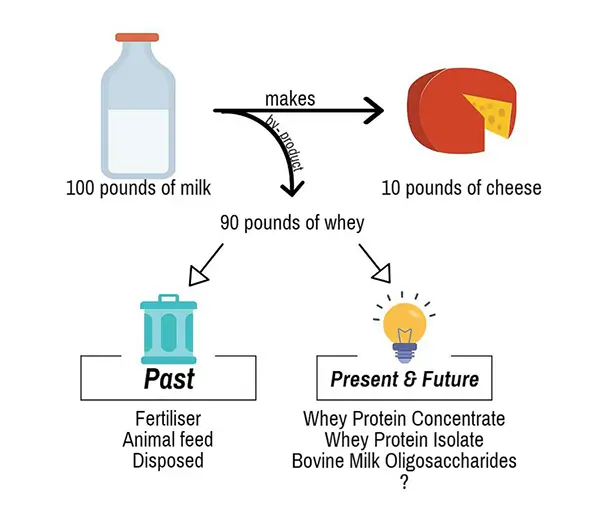
¿Por qué no miramos primero alrededor del mundo y vemos dónde están las proteínas? Lo primero que hay que entender es que todas las proteínas de este planeta son creadas por las plantas. Cada aminoácido de cada célula de cada animal de este planeta procede de plantas que lo crearon en primer lugar. Los animales son sólo usuarios, y los animales no crean nada. Las plantas lo hacen. Los animales consumen plantas y luego otros animales consumen animales.
No hay debate entre proteínas vegetales y animales. Todo es proteína vegetal y siempre lo ha sido.
En la naturaleza, los homínidos eran criaturas tropicales, así que ¿dónde están las proteínas? Si nos fijamos en las especies de nuestros antepasados y en los indígenas de hoy en día, ¿qué podemos ver?
Si observamos a nuestros antepasados reales, es decir, a los homínidos de los climas cálidos en los que evolucionamos, y miramos dónde y cuánta proteína obtienen en sus dietas nos daremos cuenta de que no tenían una dieta centrada en la proteína, sólo los neandertales la tenían en el extremo norte debido al clima. Sin embargo, para nosotros es una historia completamente diferente.
Antes de que la tecnología permitiera a los seres humanos superar los 40 paralelos, ¿cuántas proteínas comíamos habitualmente?
La respuesta corta sería alrededor de 10 a 20 gramos de media al día. Y todas o al menos el 97% de las proteínas eran de origen vegetal y alrededor del 3% de origen animal.
Las pruebas antropológicas demuestran que durante la mayor parte de la evolución de los homínidos nunca se consumieron proteínas en la cantidad actual. Y todas las especies de homínidos eran veganas y todos los primates también. Entonces, ¿cómo podemos prosperar con fuentes de proteínas de bajo nivel y baja calidad?
Lo que ocurre es que tenemos una reserva de aminoácidos y cuando comemos proteínas se digieren en aminoácidos individuales que se almacenarían en esa reserva. Lo que necesitamos es comer diferentes tipos de especies vegetales con diferentes perfiles de aminoácidos y nuestro cuerpo creará una proteína completa. Creamos proteína completa en nuestro cuerpo así que no tienes que comer proteína copulada fuera de tu cuerpo en absoluto, sólo un par de plantas diferentes y ya está.
Durante la mayor parte de nuestra evolución, es decir, unos 50 millones de años, nuestra dieta se parecía bastante a la de los primates vivos actuales. Las necesidades de proteínas en la dieta estaban en el nivel que según los estándares actuales se consideraría severamente inadecuado, pero sólo en los medios. Cuando hablas con científicos reales que saben sobre autofagia te dirán que incluso ese número es más que suficiente. Debido a que la mayoría de las personas del tipo culturista ceto paleo y la gente promedio, en general, carecen de una formación científica son en su mayoría manipulados. Diré que casi todas las personas que piensan que necesitan proteínas en su dieta nunca escuchan la palabra autofagia.
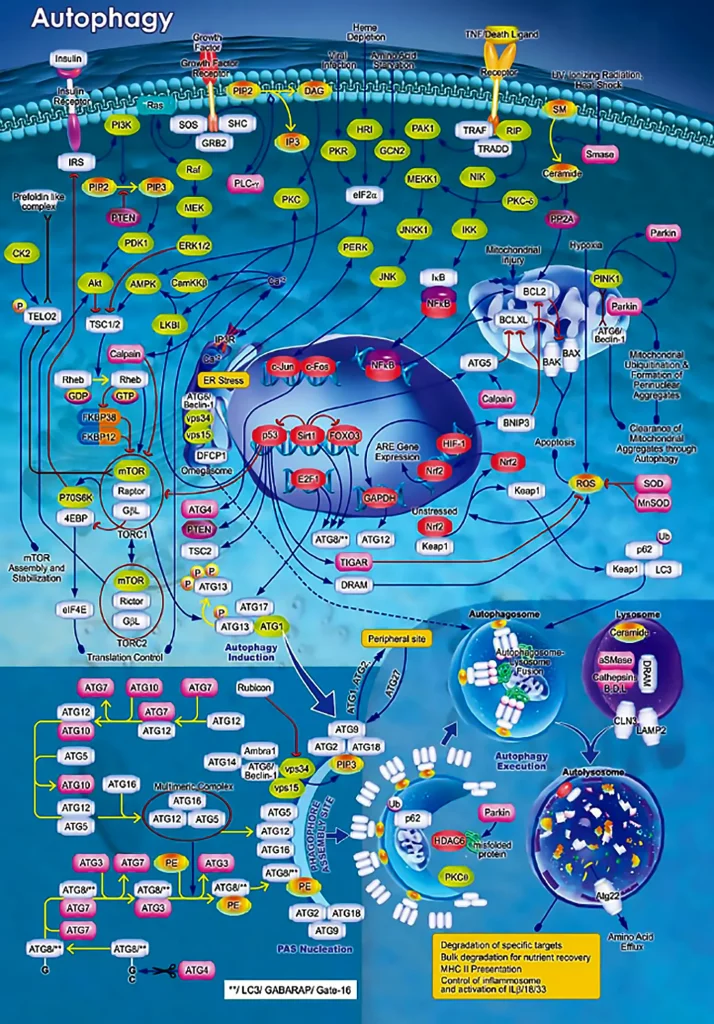
El funcionamiento de nuestro cuerpo es que, como hay escasez en la naturaleza, hemos evolucionado para salvar todo lo que se puede salvar. Cada cosa que podamos salvar tendrá una influencia dramática en nuestras posibilidades de supervivencia en un mundo sin tecnología que ha durado más de 50 millones de años de nuestra evolución. Lo mismo ocurre con las proteínas.
Nuestro cuerpo guarda proteínas. Es el proceso de la autofagia.
Esto significa que te comes a ti mismo todos los días. Cada célula de nuestro cuerpo está hecha de proteínas y cuando las células mueren se reciclan. Y esto no es lo mismo que el reciclaje falso como el plástico, sino el reciclaje real que es 100 por ciento eficiente. Auto significa uno mismo y phagy significa comer. Nos comemos a nosotros mismos todos los días.
Las únicas células que perdemos físicamente son las que no se reciclan, como el pelo, las uñas y la piel. Todo lo demás se recicla.
Y esta es una gran verdad que, de alguna manera, la mayoría de los nutricionistas y médicos y todo el mercado y la industria de los suplementos olvidan convenientemente.
No necesitamos proteínas para vivir. Reciclamos las proteínas. Necesitamos reponer la proteína que ha abandonado nuestro cuerpo en forma de piel, pelo y uñas muertas. Eso es un par de gramos en un día.
Esa es la verdad.
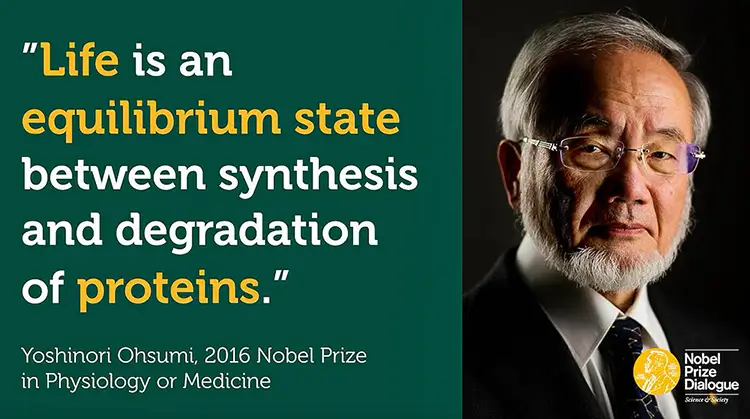
Nos hemos adaptado para ahorrar aminoácidos y nos hemos adaptado para utilizar el reciclaje de proteínas en una época de escasez constante, pero lo que tenemos hoy es un entorno que no es congruente con nuestra fisiología y cuando comemos en exceso alimentos ricos en proteínas de forma constante tendría graves implicaciones en nuestra salud.
El exceso de proteínas crearía una señalización hormonal excesiva en forma de IGF-1 y mTOR y detendría la autofagia. Esto llevaría con el tiempo a la acumulación de células demergidas y al desarrollo de mutaciones. Esto se correlaciona no sólo con el cáncer, sino con una amplia gama de enfermedades. En el pasado, la escasez obligaba a nuestros antepasados homínidos a ayunar, pero lo que tenemos hoy es una epidemia de cáncer.
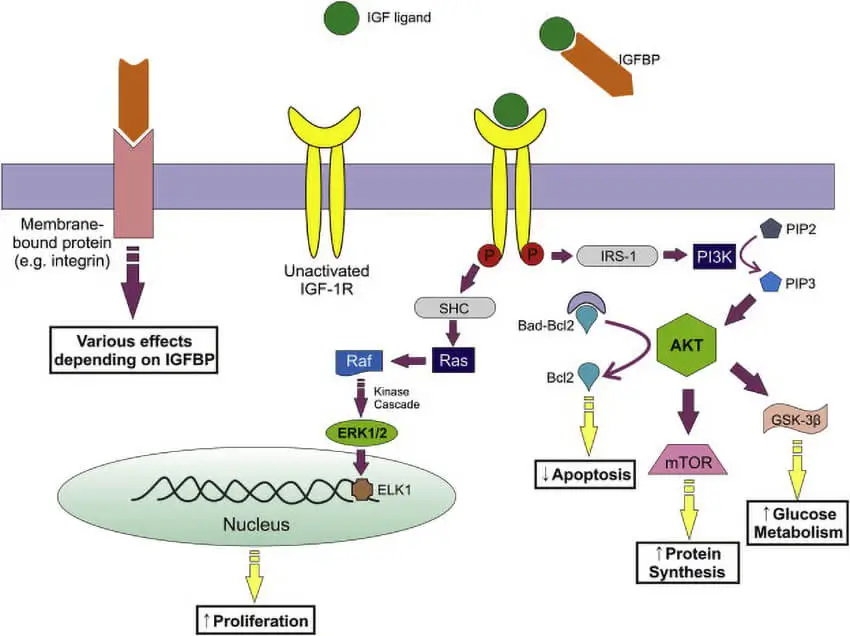
Si miramos los datos estadísticos de la medicina en el mundo desarrollado, ¿qué encontraríamos? La verdad es que a lo largo de toda la historia de la práctica médica hasta ahora hubo muy pocos casos, casi insignificantes, de deficiencia de proteínas. Hay millones de personas que mueren por deficiencia de calorías, es decir, por hambre, pero la deficiencia de proteínas por sí sola, con el consumo suficiente de otras calorías, no existe. No existe. Sólo hay un caso en la práctica veterinaria cuando alimentan a las vacas con maíz que carece de un aminoácido específico. Hay una cantidad de 0.02 g de Triptófano (Trp) aminoácido estándar en 100 g, gramos de maíz, y el maíz no es el alimento habitual de las vacas por lo que niveles bajos de Triptófano en la dieta del ganado puede hacer que estén inquietas porque el cerebro utiliza el Triptófano para producir serotonina, una hormona de la felicidad. Una dieta de maíz es una dieta que hará que el ganado esté "deprimido". Ese es el único caso de deficiencia de aminoácidos con cantidades adecuadas de ingesta calórica que conozco.
Número 75 de la revista Vogue, el inicio del mito de las proteínas complementarias, donde algunos científicos a sueldo hicieron la recomendación de que combinando diferentes proteínas vegetales se puede crear una completa que nuestro cuerpo necesita.

El mito de las "proteínas complementarias" nació y sigue vivo y coleando. Y ahora qué, ¿sigues pensando que las proteínas vegetales no son tan buenas y que hay que comer proteínas completas de origen animal o al menos hacer combinaciones de "proteínas complementarias"?
Nuestros propios cuerpos evolucionaron para no ser estúpidos. Tenemos una reserva de todos los aminoácidos esenciales sin tener en cuenta los casi 90 gramos de proteínas que nuestro cuerpo recicla cada día. Incluso si se quiere hacer un estudio para diseñar una dieta a partir de alimentos vegetales integrales que sea suficiente en calorías pero insuficiente en proteínas sería científicamente imposible hacerlo. Podemos sobrevivir sólo comiendo arroz o patatas y nada más indefinidamente. En el caso de las patatas, un ejemplo sería Irlanda antes de la hambruna de la patata, donde hay un único cultivo que consiguió mantener a toda la nación, y en el caso del arroz todo el continente asiático.

Puede haber algún otro déficit nutricional, pero proteínas o algún aminoácido en particular, no. Incluso el zumo de zanahoria tiene un 2% de proteínas, por lo que es suficiente para sobrevivir.
Lo que tienes que hacer es olvidarte de las proteínas. Olvidar que existen. Es sólo una estafa de marketing, básicamente, eso es lo que es. Nunca serás deficiente en proteínas, incluso si estás en una dieta frutariana, incluso si quieres diseñar la dieta para ser deficiente en proteínas, es casi imposible. Nosotros y casi la mitad del planeta hasta hace poco no comiamos nada mas que arroz y nunca habiamos tenido deficiencia de proteinas.
No hay carencia de proteínas en el mundo subdesarrollado, donde la dieta sigue siendo vegana y está dominada por el almidón. No hay mucha proteína para los estándares modernos en el arroz. ¿O qué tal esto? Todas las civilizaciones humanas desde el principio de los tiempos, o en terminología más científica, desde la revolución neolítica hasta el descubrimiento de los fertilizantes sintéticos hace 70 años, han prosperado con una dieta vegana "baja en proteínas" basada en el almidón. Toda la civilización humana durante toda la historia de la humanidad.
Aun así, ¿cree que las proteínas son importantes?
Vale, ¿qué pasaría si no comieras proteínas en ninguna de sus formas durante todo un año? ¿Desarrollarías Kwashiorkor?
Necesitamos obligatoriamente 25 gramos, eso es lo que nos dice ahora la ciencia médica convencional. Esto es excesivo, pero para la mayoría de la gente, incluso este número excesivo es extremadamente bajo y en realidad causaría algo que me gusta llamar ansiedad proteína.
¿Qué pasaría si no comiéramos proteínas en absoluto durante todo un año, ni un gramo?
Por cierto, 100 gramos de tejido no son 100 gramos de proteínas, son entre 22 y 25. El resto es agua y grasa. El resto es agua y grasa. Si no comes proteínas durante un mes y haces ayuno de agua ¿perderías tejido normal además de grasa como parece proponer la ciencia médica convencional?
Y la respuesta es no.
Sólo perderás grasa y algunos aminoácidos o masa muscular inicialmente. Y ahora sé que voy en contra de toda la civilización occidental así que recordemos un estudio que ya menciono en la parte 1 de la serie de libros. Hubo un caso de un escocés de 27 años con obesidad mórbida llamado Angus Barbieri que ayunó durante todo un año bajo supervisión médica estudio (Stewart y otros, 1973). Le daban suplementos vitamínicos a diario. Sin calorías ni proteínas. Desde el día 93 hasta el día 162 se le administró potasio y desde el día 345 hasta el día 355 sólo se le administraron 2,5 g de sal de mesa al día. No se le administró ningún otro tratamiento farmacológico.
Pero, ¿dónde están las proteínas?
¿Dónde están los 25 gramos obligatorios? El paciente perdió 276 libras durante sus 382 días de dieta, pero ¿cómo es que sigue vivo? Según la ciencia médica la proteína obligatoria es imprescindible. ¿Cuántos kilos de tejido muscular perdió si 25 gramos de proteína obligatoria son 100 gramos de tejido normal? ¿El paciente desarrolló Kwashiorkor?
Bueno, no perdió músculo ni tejido.
Sólo perdió grasa, y la proteína se recicló durante todo un año. Puede que haya perdido algo de músculo, pero eso es todo. Así que permítanme preguntar de nuevo.
¿Cuántas proteínas necesitamos consumir para vivir? ¿Y la calidad o integridad de las proteínas?

Lo más probable es que suframos un exceso de proteínas que puede causar una amplia gama de problemas, desde un mayor riesgo de cáncer, una progresión precipitada de la enfermedad arterial coronaria, trastornos de la función hepática, trastornos de la función renal y trastornos de la homeostasis ósea y del calcio (Delimaris, 2013). Lo mejor que puedes hacer es, lo escribiré de nuevo, olvidar que alguna vez has oído la palabra proteína.
Empieza a pensar en carencias minerales, empieza a pensar en fibra, empieza a pensar en antioxidante deficiencias.
¿Quién considera que las verduras de hoja verde no son una buena fuente de proteínas? La industria ganadera.
¿Y los minerales? ¿Las verduras de hoja verde tienen minerales en abundancia de modo que no necesitamos desarrollar mecanismos especiales para intentar absorberlos activamente? Hemos cambiado nuestra dieta, y eso es exactamente lo que podemos ver en la población media. Una sobreabundancia de proteínas promotoras del cáncer y toxificantes y deficiencia de minerales y fibra en alrededor del 97 por ciento de la población estadounidense. Demasiadas proteínas, pocos minerales, fitoquímicosy fibra porque en el pasado y me refiero a 50 millones de años de evolución de los homínidos, nuestra dieta se basaba en un 97% en plantas y un 3% en animales.
Referencias:
- Lunn, P. G., Morley, C. J., & Neale, G. (1998). Un caso de kwashiorkor en el Reino Unido. Nutrición clínica (Edimburgo, Escocia), 17(3), 131-133. https://doi.org/10.1016/s0261-5614(98)80007-1
- Fulgoni, V. L. (2008). Ingesta actual de proteínas en Estados Unidos: Analysis of the National Health and Nutrition Examination Survey, 2003-2004. El Diario Americano de la Nutrición Clínica, 87(5), 1554S-1557S. https://doi.org/10.1093/ajcn/87.5.1554S
- Stewart, W. K., & Fleming, L. W. (1973). Características de un ayuno terapéutico exitoso de 382 días de duración. Revista médica de posgrado, 49(569), 203-209. https://doi.org/10.1136/pgmj.49.569.203
- Delimaris I. (2013). Efectos adversos asociados con la ingesta de proteínas por encima de la ración dietética recomendada para adultos. ISRN nutrición, 2013, 126929. https://doi.org/10.5402/2013/126929
Contenidos Relacionados
¿Tienes alguna duda acerca de la nutrición y la salud?
Me encantaría saber de usted y responderlas en mi próxima publicación. Agradezco sus aportes y opiniones y espero tener noticias suyas pronto. También te invito a síguenos en Facebook, Instagram y Pinterest para más contenidos sobre dieta, nutrición y salud. Puedes dejar un comentario allí y conectar con otros entusiastas de la salud, compartir tus consejos y experiencias, y recibir apoyo y ánimo de nuestro equipo y nuestra comunidad.
Espero que este post le haya resultado informativo y ameno y que esté preparado para aplicar los conocimientos adquiridos. Si le ha resultado útil, por favor compártelo con tus amigos y familiares que también podrían beneficiarse de ella. Nunca se sabe quién puede necesitar orientación y apoyo en su camino hacia la salud.
– También Te Puede Interesar –

Aprenda Sobre Nutricion
Milos Pokimica es doctor en medicina natural, nutricionista clínico, escritor sobre salud médica y nutrición y asesor en ciencias de la nutrición. Autor de la serie de libros Go Vegan? Revisión de la Ciencia, también dirige el sitio web sobre salud natural GoVeganWay.com.
Descargo De Responsabilidad Médica
GoVeganWay.com le ofrece reseñas de las últimas investigaciones relacionadas con la nutrición y la salud. La información proporcionada representa la opinión personal del autor y no pretende ni implica sustituir el asesoramiento, diagnóstico o tratamiento médico profesional. La información proporcionada tiene fines informativos únicamente y no pretende sustituir la consulta, el diagnóstico y/o el tratamiento médico de un médico o proveedor de atención médica calificado.NUNCA ignore el CONSEJO MÉDICO PROFESIONAL O RETRASAR la BÚSQUEDA de TRATAMIENTO MÉDICO a CAUSA DE ALGO QUE HAYA LEÍDO EN O accesibles a TRAVÉS de GoVeganWay.com
NUNCA APLICAR CUALQUIER cambio de ESTILO de vida O CAMBIOS EN su totalidad COMO UNA CONSECUENCIA DE ALGO QUE HA LEÍDO EN GoVeganWay.com ANTES de CONSULTAR con LICENCIA PROFESIONAL MÉDICO.
En el caso de una emergencia médica, llame a un médico o al 911 inmediatamente. GoVeganWay.com no se recomienda ni aprueba ninguna de los grupos, las organizaciones, las pruebas, los médicos, productos, procedimientos, opiniones u otra información que pueda ser mencionado en el interior.
Selecciones del editor –
Milos Pokimica es escritor especializado en salud y nutrición y asesor en ciencias nutricionales. Autor de la serie de libros Go Vegan? Revisión de la Ciencia, también dirige el sitio web sobre salud natural GoVeganWay.com.
Últimos artículos -
Top Noticias De Salud — ScienceDaily
- The overlooked nutrition risk of Ozempic and Wegovyen febrero 4, 2026
Popular weight-loss drugs like Ozempic and Wegovy can dramatically curb appetite, but experts warn many users are flying blind when it comes to nutrition. New research suggests people taking these medications may not be getting enough guidance on protein, vitamins, and overall diet quality, increasing the risk of muscle loss and nutrient deficiencies.
- A 25-year study found an unexpected link between cheese and dementiaen febrero 4, 2026
A massive Swedish study tracking nearly 28,000 people for 25 years found an unexpected link between full-fat dairy and brain health. Among adults without a genetic risk for Alzheimer’s, eating more full-fat cheese was associated with a noticeably lower risk of developing the disease, while higher cream intake was tied to reduced dementia risk overall. The findings challenge decades of low-fat dietary advice but come with important caveats.
- MIT’s new brain tool could finally explain consciousnessen febrero 4, 2026
Scientists still don’t know how the brain turns physical activity into thoughts, feelings, and awareness—but a powerful new tool may help crack the mystery. Researchers at MIT are exploring transcranial focused ultrasound, a noninvasive technology that can precisely stimulate deep regions of the brain that were previously off-limits. In a new “roadmap” paper, they explain how this method could finally let scientists test cause-and-effect in consciousness research, not just observe […]
- Why heart disease risk in type 2 diabetes looks different for men and womenen febrero 4, 2026
Scientists are digging into why heart disease risk in type 2 diabetes differs between men and women—and sex hormones may be part of the story. In a large Johns Hopkins study, men with higher testosterone had lower heart disease risk, while rising estradiol levels were linked to higher risk. These hormone effects were not seen in women. The results point toward more personalized approaches to heart disease prevention in diabetes.
- Sound machines might be making your sleep worseen febrero 4, 2026
Sound machines may not be the sleep saviors many believe. Researchers found that pink noise significantly reduced REM sleep, while simple earplugs did a better job protecting deep, restorative sleep from traffic noise. When pink noise was combined with outside noise, sleep quality dropped even further. The results suggest that popular “sleep sounds” could be doing more harm than good—particularly for kids.
- This unexpected plant discovery could change how drugs are madeen febrero 3, 2026
Plants make chemical weapons to protect themselves, and many of these compounds have become vital to human medicine. Researchers found that one powerful plant chemical is produced using a gene that looks surprisingly bacterial. This suggests plants reuse microbial tools to invent new chemistry. The insight could help scientists discover new drugs and produce them more sustainably.
- A hidden cellular process may drive aging and diseaseen febrero 3, 2026
As we age, our cells don’t just wear down—they reorganize. Researchers found that cells actively remodel a key structure called the endoplasmic reticulum, reducing protein-producing regions while preserving fat-related ones. This process, driven by ER-phagy, is tied to lifespan and healthy aging. Because these changes happen early, they could help trigger later disease—or offer a chance to stop it.
PubMed, #Dieta vegana –
- Diet type and the oral microbiomeen febrero 2, 2026
CONCLUSION: The diet-oral microbiome-systemic inflammation axis is bidirectional and clinically relevant. Understanding both direct ecological regulation and indirect metabolic effects is essential to support precision nutrition strategies aimed at maintaining oral microbial balance and systemic inflammatory risk mitigation.
- Consensus document on healthy lifestylesen enero 22, 2026
Proteins are a group of macronutrients that are vital to our lives, as they perform various functions, including structural, defensive and catalytic. An intake of 1.0-1.2 g/kg/body weight per day would be sufficient to meet our needs. Carbohydrate requirements constitute 50 % of the total caloric value and should be obtained mainly in the form of complex carbohydrates. In addition, a daily intake of both soluble and insoluble fiber is necessary. Regular consumption of extra virgin olive oil […]
- Vitamin B12 and D status in long-term vegetarians: Impact of diet duration and subtypes in Beijing, Chinaen enero 21, 2026
CONCLUSIONS: This study reveals a dual challenge among Beijing long-term vegetarians: vitamin B12 deficiency was strongly associated with the degree of exclusion of animal products from the diet (veganism), while vitamin D deficiency was highly prevalent and worsened with longer diet duration. The near-universal vitamin D deficiency observed in this study suggests that, in the Beijing context, the risk may extend beyond dietary choice, potentially reflecting regional environmental factors;…
- Nutritional evaluation of duty meals provided to riot police forces in Germanyen enero 13, 2026
Background: The primary role of the German riot police is maintaining internal security. Due to challenging working conditions, riot police forces face an elevated risk of various diseases. During duty, forces are provided with meals. A balanced diet can reduce the risk of some of these diseases and contribute to health-promoting working conditions. Aim: First evaluation of the nutritional quality of duty meals in Germany based on German Nutrition Society recommendations (DGE). Methods: In…
- Iodineen enero 1, 2006
Iodine is an essential trace nutrient for all infants that is a normal component of breastmilk. Infant requirements are estimated to be 15 mcg/kg daily in full-term infants and 30 mcg/kg daily in preterm infants.[1] Breastmilk iodine concentration correlates well with maternal urinary iodine concentration and may be a useful index of iodine sufficiency in infants under 2 years of age, but there is no clear agreement on a value that indicates iodine sufficiency, and may not correlate with […]
Publicaciones aleatorias –
Publicaciones destacadas -
La última versión desde PubMed, #Dieta basada en plantas –
- From paddy soil to dining table: biological biofortification of rice with zincpor Lei Huang en febrero 4, 2026
One-third of paddy soils are globally deficient in zinc (Zn) and 40% of Zn loss in the procession from brown rice to polished rice, which results in the global issue of hidden hunger, e.g., the micronutrient deficiencies in the rice-based population of developing countries. In the recent decades, biofortification of cereal food crops with Zn has emerged as a promising solution. Herein, we comprehensively reviewed the entire process of Zn in paddy soil to human diet, including the regulatory…
- Molecular Characterization of Tobacco Necrosis Virus A Variants Identified in Sugarbeet Rootspor Alyssa Flobinus en febrero 3, 2026
Sugarbeet provides an important source of sucrose; a stable, environmentally safe, and low-cost staple in the human diet. Viral diseases arising in sugarbeet ultimately impact sugar content, which translates to financial losses for growers. To manage diseases and prevent such losses from occurring, it is essential to characterize viruses responsible for disease. Recently, our laboratory identified a tobacco necrosis virus A variant named Beta vulgaris alphanecrovirus 1 (BvANV-1) in sugarbeet…
- Nutrition in early life interacts with genetic risk to influence preadult behaviour in the Raine Studypor Lars Meinertz Byg en febrero 3, 2026
CONCLUSIONS: Nutrition in early life and psychiatric genetic risk may interact to determine lasting child behaviour. Contrary to our hypothesis, we find dietary benefits in individuals with lower ADHD PGS, necessitating replication. We also highlight the possibility of including genetics in early nutrition intervention trials for causal inference.
- Effect of the gut microbiota on insect reproduction: mechanisms and biotechnological prospectspor Dilawar Abbas en febrero 2, 2026
The insect gut microbiota functions as a multifunctional symbiotic system that plays a central role in host reproduction. Through the production of bioactive metabolites, gut microbes interact with host hormonal pathways, immune signaling, and molecular regulatory networks, thereby shaping reproductive physiology and fitness. This review summarizes recent advances in understanding how gut microbiota regulate insect reproduction. Accumulating evidence demonstrates that microbial metabolites…
- Rationale and design of a parallel randomised trial of a plant-based intensive lifestyle intervention for diabetes remission: The REmission of diabetes using a PlAnt-based weight loss InteRvention…por Brighid McKay en febrero 2, 2026
CONCLUSIONS: This trial will provide high-quality clinical evidence on the use of plant-based ILIs to address the epidemics of obesity and diabetes to inform public health policies and programs in Canada and beyond.
- Diet type and the oral microbiomepor Daniel Betancur en febrero 2, 2026
CONCLUSION: The diet-oral microbiome-systemic inflammation axis is bidirectional and clinically relevant. Understanding both direct ecological regulation and indirect metabolic effects is essential to support precision nutrition strategies aimed at maintaining oral microbial balance and systemic inflammatory risk mitigation.
